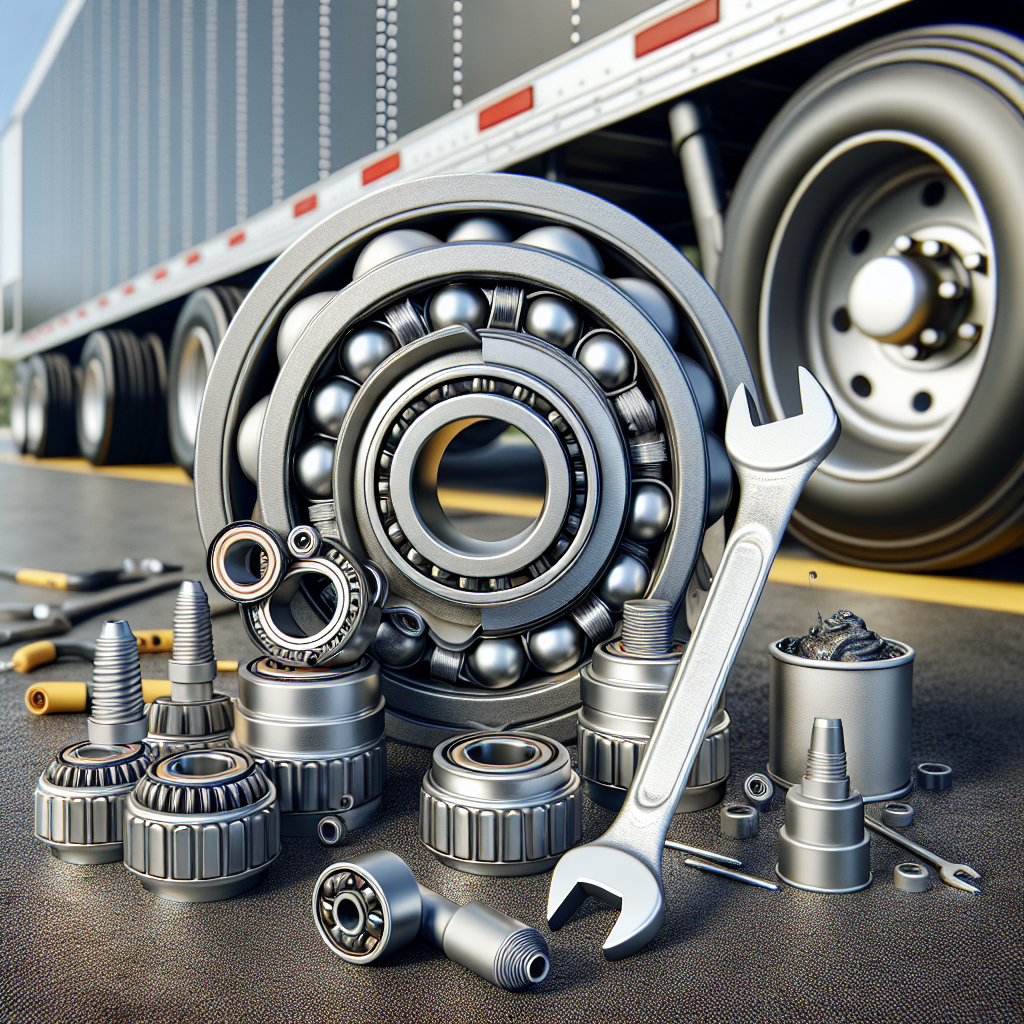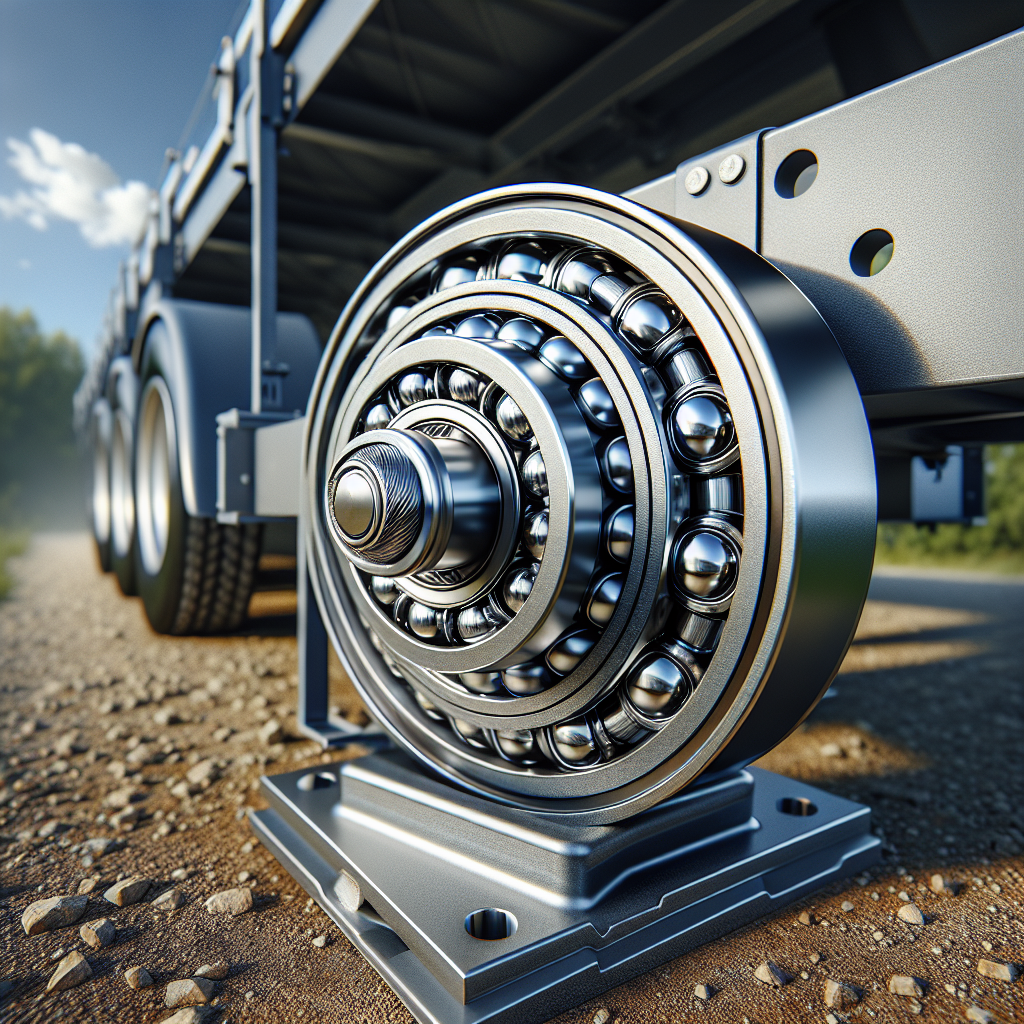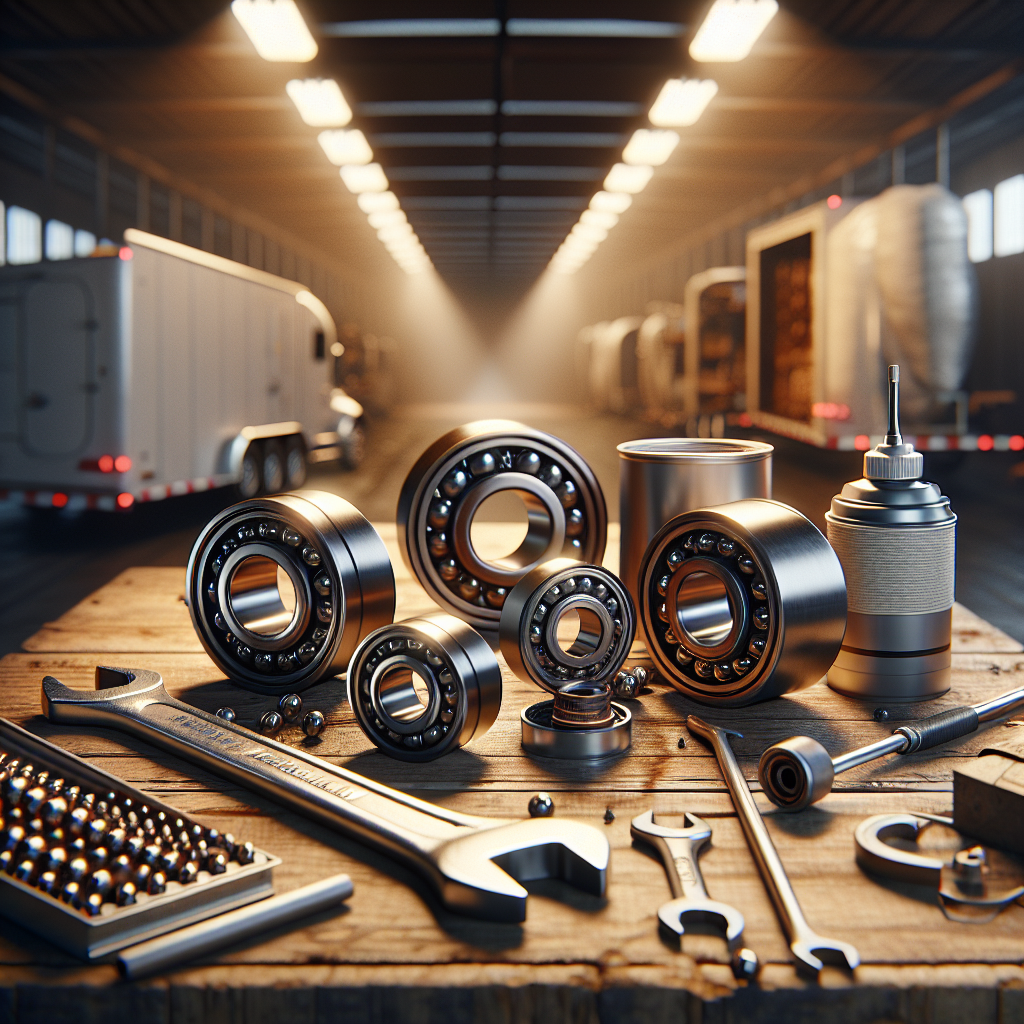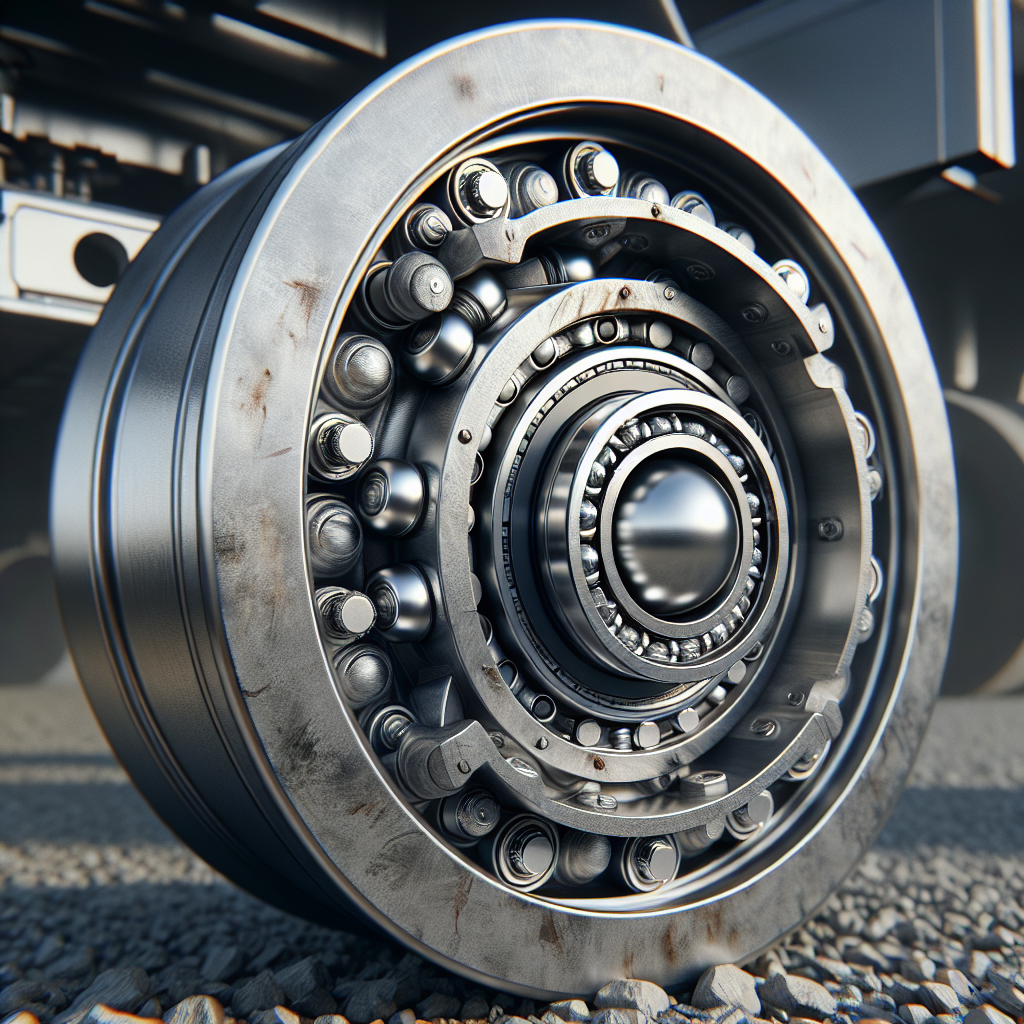When it comes to maintaining your trailer, understanding the importance of wheel bearings cannot be overstated. These crucial components play a vital role in ensuring safe and smooth operation while you’re on the road. In essence, trailer wheel bearings facilitate the rotation of the wheels, allowing them to spin freely while supporting the weight of the trailer.
Without properly functioning wheel bearings, you risk encountering a number of issues, including:
- Increased Friction: Poorly lubricated or damaged bearings can lead to excessive friction, causing overheating and potential failure.
- Wobbling Wheels: Faulty bearings may result in instability, leading to a wobbly trailer that compromises safety.
- Brake Failure: If wheel bearings are not functioning correctly, they can affect the braking system, putting you and others on the road at risk.
Regularly checking your trailer wheel bearings is essential for preventing these issues and ensuring the longevity of your trailer. It’s not just about the mechanics; it’s about the safety of you and your passengers. To tow with peace of mind, knowing that trailerwatchdog is standing guard, consider implementing a smart monitoring system that keeps track of your trailer’s vital data.
Signs of Worn or Damaged Wheel Bearings
Identifying the signs of worn or damaged wheel bearings early can make a significant difference in your trailer's safety and performance. Here are some key indicators to watch for:
- Unusual Noises: One of the first signs of bearing issues is a grinding or humming noise coming from the wheel area. This often indicates that the bearings are worn and need replacement.
- Excessive Heat: If you notice that the wheel hub feels excessively hot to the touch after a drive, it could be a sign of bearing failure. Overheating can lead to severe damage if not addressed promptly.
- Vibration or Wobbling: When driving, if you feel vibrations through the trailer or notice that the wheels are wobbling, it could indicate that the bearings are not functioning correctly. This instability can severely affect your handling and safety.
- Grease Leaks: Inspecting the area around the wheel for grease leaks is crucial. If you spot grease oozing from the seals, this may point to damaged bearings that require immediate attention.
Regular inspection and maintenance of your trailer wheel bearings can help prevent these issues and ensure a safer towing experience. Being proactive in identifying these signs can save you from costly repairs and potential accidents.
Essential Tools for Checking Wheel Bearings

Having the right tools is essential for effectively checking your trailer wheel bearings. With the appropriate equipment, you can perform a thorough inspection to ensure your trailer's safety and performance. Here’s a list of essential tools you’ll need:
- Jack and Jack Stands: To safely lift your trailer and access the wheel bearings, a reliable jack is necessary. Always use jack stands to secure the trailer while you work underneath it.
- Wheel Chocks: Before lifting the trailer, use wheel chocks on the opposite wheels to prevent any movement. This safety measure is crucial when performing maintenance tasks.
- Socket Set: A complete socket set will help you remove the wheel hub and access the bearings. Ensure you have the correct sizes for your specific trailer model.
- Grease Gun: If your wheel bearings are of the greased type, a grease gun is essential for adding lubrication and maintaining optimal performance.
- Magnet or Pick Tool: These tools can help you extract the bearings from the hub more efficiently. They’re particularly useful for handling small parts without damaging them.
Equipping yourself with these tools will make the trailer wheel bearing check process smoother and more efficient. Regular maintenance using the right equipment can significantly enhance the longevity and safety of your trailer.
Step-by-Step Guide to Checking Wheel Bearings

Performing a trailer wheel bearing check is essential to ensure your trailer operates safely and efficiently. Follow this step-by-step guide to thoroughly inspect your wheel bearings:
- Prepare Your Workspace: Ensure your trailer is parked on a flat, stable surface. Use wheel chocks on the opposite wheels and engage the parking brake to prevent any movement.
- Lift the Trailer: Using a jack, lift the trailer to access the wheels. Secure it with jack stands to ensure safety while you work underneath.
- Remove the Wheel: Use your socket set to remove the lug nuts and take off the wheel. This will give you direct access to the hub and wheel bearings.
- Inspect the Bearings: Carefully remove the grease cap and check the bearings for any signs of damage or wear. Look for cracks, pitting, or discoloration that may indicate overheating.
- Check for Play: Grasp the wheel at the 12 and 6 o'clock positions and try to wiggle it. If there’s excessive play, it could mean the bearings are worn out and need replacement.
- Clean and Repack: If the bearings are in good condition, clean them with a suitable solvent and repack them with fresh grease using a grease gun. Ensure they are adequately lubricated for optimal performance.
After completing these steps, reassemble the wheel and lower the trailer. Regular checks will help maintain your trailer's reliability and safety on the road.
Preventive Maintenance for Trailer Wheel Bearings

Maintaining your trailer's wheel bearings is crucial for ensuring a safe and smooth towing experience. By implementing a solid preventive maintenance routine, you can significantly extend the lifespan of your trailer components and prevent costly repairs down the road. Here are some effective strategies:
- Regular Inspections: Conduct thorough inspections of your wheel bearings every few months or before long trips. Look for signs of wear, such as rust or excessive play.
- Grease the Bearings: Ensure that your bearings are adequately greased. Follow manufacturer recommendations for grease type and intervals, typically every 12 months or every 12,000 miles.
- Monitor Temperature: Keep an eye on the temperature of your wheel hubs during trips. Overheating can indicate bearing failure or insufficient lubrication. Consider using monitoring systems that alert you to temperature changes.
- Check Tire Alignment: Misalignment can lead to uneven wear on wheel bearings. Regularly check and adjust your trailer's alignment to maintain even tire wear and reduce stress on the bearings.
- Replace When Necessary: If you notice any signs of damage or excessive wear during inspections, replace the bearings immediately. Waiting too long can lead to catastrophic failure.
By following these preventive maintenance tips, you can ensure that your trailer wheel bearings remain in optimal condition, enhancing safety and performance on the road.
When to Seek Professional Assistance

While many trailer maintenance tasks can be performed by owners, there are times when seeking professional assistance becomes necessary. Understanding when to call in the experts can save you from further complications and ensure your trailer remains safe and functional. Here are key indicators that you should consult a professional:
- Unusual Noises: If you hear grinding, squeaking, or clunking noises coming from your wheel bearings, it’s a sign that something may be wrong. A professional can diagnose the issue accurately.
- Excessive Heat: During routine checks, if you notice that the wheel hubs are unusually hot to the touch, it may indicate a bearing failure. A technician can inspect the bearings and lubricate or replace them as necessary.
- Vibration While Towing: If you experience vibrations that are not typical during towing, this could signal issues with the wheel bearings or other components. A professional can identify the root cause and recommend appropriate repairs.
- Inexperienced with Repairs: If you are unsure about how to perform a trailer wheel bearing check or maintenance, it’s wise to consult a professional. Incorrect repairs can lead to serious safety risks.
- Time Constraints: If you are short on time and cannot dedicate the necessary effort to inspect and maintain your trailer, scheduling a service with a professional can provide peace of mind.
Recognizing these signs early can help avoid more significant issues down the road. For added safety, consider integrating advanced monitoring systems, such as those from TrailerWatchdog. Tow with peace of mind, knowing that trailerwatchdog is standing guard.








